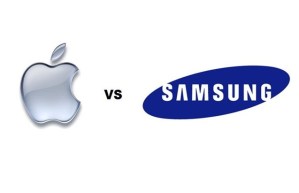 Last summer, everyone in the tech world watched excitedly to find out just how the Apple vs. Samsung lawsuit would play out. For those who were asleep, Apple sued Samsung for $2.5 billion dollars for a slew of what were, at the time, alleged patent infringements.
Last summer, everyone in the tech world watched excitedly to find out just how the Apple vs. Samsung lawsuit would play out. For those who were asleep, Apple sued Samsung for $2.5 billion dollars for a slew of what were, at the time, alleged patent infringements.
As we reported at the trial’s conclusion, the court ultimately ruled largely in favor of Apple. And while the Cupertino conglomerate didn’t get the full amount they were hoping for — in fact, it got less than half — it still dealt a major blow to Samsung (though not nearly enough to put the company into financial distress), awarding it $1,049,343,540.
However, as reported by Foss Patents, five months later, Judge Lucy Koh, the federal judge that resided over the trial, ordered a strike against nearly half of the damages: specifically $450,514,650. This doesn’t necessarily mean Apple won’t get the money, eventually. This is in response to Samsung’s lawyers questioning the fairness in which the jury awarded damages to 14 individual Samsung devices: Captivate, Continuum, Droid Charge, Epic 4G, Exhibit 4G, Galaxy Prevail, Galaxy S2 AT&T, Galaxy Tab, Gem, Indulge, Infuse 4G, Nexus S 4G, Replenish, and Transform
So now, Apple and Samsung are headed back to the courthouse, though there’s no word yet as to when this trial will take place. But we do know that an entirely new jury is going to be summoned, so this could be another lengthy trial, as the lawyers on both sides will have to reintroduce most of the evidence again in order to educate them.
But there’s more money still to potentially be awarded to Apple aside from the damages from the device infringements. Before the first trial, Apple requested, and was ultimately awarded the right to, supplemental damages for all sales that took place during the course of the trial.
In addition, Apple also requested, and was granted, interest on these sales through to the time a verdict was finally reached. While Apple requested the prime interest rate, Samsung countered, asking for the 52-week Treasury bill rate, which is significantly lower — today it’s at just 0.15 percent. This was one part of the trial in which Samsung “won.”
Of course, neither of these could happen until the trial ended and the court could review official sales numbers throughout the time the verdict was reached. But now that’s being pushed back again, until trial number two ends, so this will still have to wait. (It’s unclear whether or not the court will consider sales from the time between the original verdict and the follow-up; likely, it will have to be at Apple’s request.)
It will be interesting to see how this all plays out. We’ll be watching the story closely and will keep you all posted.
Editors' Recommendations
- Samsung Galaxy S24 Ultra vs. iPhone 15 Pro Max: Which one is best?
- Samsung Galaxy S24 vs. iPhone 15: don’t buy the wrong one
- iPhone 15 Pro Max vs. Samsung Galaxy S23 Ultra: which one is best?
- Samsung’s $450 phone does one thing way better than the iPhone 14
- Samsung Galaxy A54 vs. Galaxy S23: should you spend $450 or $800?


